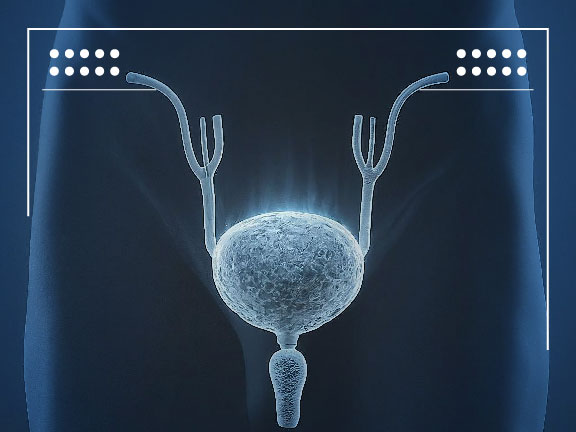Multiple myeloma (also known as plasma cell myeloma or blood cancer myeloma) is a type of blood cancer that develops in plasma cells, which are a form of white blood cell found in the bone marrow. These cancerous plasma cells proliferate without restrictions, producing abnormal proteins (monoclonal proteins) that can damage bones, kidneys, and other organs. The disease causes bone pain, anemia, kidney dysfunction, and increased risk to develop new infections.

Types
- Smoldering Multiple Myeloma (SMM): No symptoms; abnormal labs without organ damage. Managed with close observation.
- Active/Symptomatic Multiple Myeloma: Organ damage or CRAB features present; treatment is required.
- Light-chain Myeloma (kappa/lambda): Produces free light chains rather than intact immunoglobulins.
- Non-secretory Myeloma: No measurable M-protein in blood/urine (rare); diagnosis relies on marrow/imaging.
- Solitary Plasmacytoma (bone or extramedullary): Single tumor of plasma cells; part of the myeloma spectrum.
- Relapsed/Refractory Myeloma: Returns after treatment or does not respond to standard therapy.
- By immunoglobulin type: Most commonly IgG, then IgA; rarer IgD/IgM/IgE.
Symptoms
Classic features are summarized as CRAB:
- C – Hypercalcemia: Thirst, constipation, nausea, confusion.
- R – Renal impairment: Rising creatinine, kidney dysfunction.
- A – Anemia: Fatigue, shortness of breath, pallor.
- B – Bone disease: Back/rib pain, lytic lesions, pathologic fractures.
Other possible signs:
- Frequent infections, weight loss, night sweats.
- Nerve/spinal symptoms (e.g., weakness, numbness) with vertebral involvement.
Causes & Risk Factors
- Unknown exact cause.
- Age: Most patients are 60+.
- Male sex and family history of plasma-cell disorders.
- MGUS or Smoldering myeloma history.
- Obesity.
- Possible exposures (e.g., radiation, certain chemicals); evidence is limited.
Treatments
- SMM: Watchful waiting with close monitoring.
- First-line combinations: Proteasome inhibitor + IMiD + steroid (e.g., VRd: bortezomib + lenalidomide + dexamethasone); often with anti-CD38 monoclonal antibodies (e.g., daratumumab).
- Autologous stem cell transplant for eligible patients.
- Maintenance therapy (commonly lenalidomide).
- Relapsed/Refractory options: Alternative PI/IMiD regimens, anti-CD38/SLAMF7 antibodies, CAR-T (BCMA-directed), bispecific antibodies, and clinical trials.
- Local/supportive interventions: Palliative radiotherapy, vertebroplasty/kyphoplasty, surgery in selected cases.
Support
- Bone health: Zoledronic acid or denosumab; dental evaluation to reduce osteonecrosis risk.
- Pain & mobility: Multimodal pain control, physical therapy, fall-prevention measures.
- Kidney protection: Adequate hydration; avoid nephrotoxic drugs unless approved by a clinician.
- Blood counts: Transfusion or erythropoiesis-stimulating agents when appropriate.
- Infection prevention: Vaccinations (influenza, pneumococcal, COVID-19) and prophylaxis as indicated; early evaluation of fevers.
- Nutrition & exercise: Dietitian guidance and light-to-moderate activity as tolerated.
- Psychosocial support: Counseling, support groups, and financial navigation.
Disclaimer: This content is for general information only and is not a substitute for professional medical advice. Patients should consult a hematology/oncology specialist for diagnosis and treatment decisions.
To enroll in clinical trial, you must meet highly specific criteria that’s established by the researchers who are conducting the investigation. That includes detailed information about type of cancer, treatment history, response to treatment, and other data that is collected in medical records.
If you are being treated for cancer or any other disease, your doctor should have a complete record of your medical care, including specific information about what form of the disease you have and what treatments you have received. Your patient relations coordinator will contact you and inform you about the details.
Massive Bio provides its services to the patients and their doctors at no cost—you won’t have to pay anything to receive a clinical-research matching report. There are no hidden costs involved.
Massive Bio strictly adheres to all HIPAA guidelines and international regulations focused on maintaining your privacy. We take extra measures to secure your personal information, ensuring it is protected beyond the mandatory requirements.
Your doctor may know of a clinical research study being conducted in your area that’s recruiting participants and is right for you. However, Massive Bio uses its artificial intelligence powered platform to match patients to clinical research studies that give you the best chance of a positive outcome and are being conducted in a geographical location that makes sense for you.
Yes, Massive Bio keeps your doctor up to date on your status throughout your participation.



